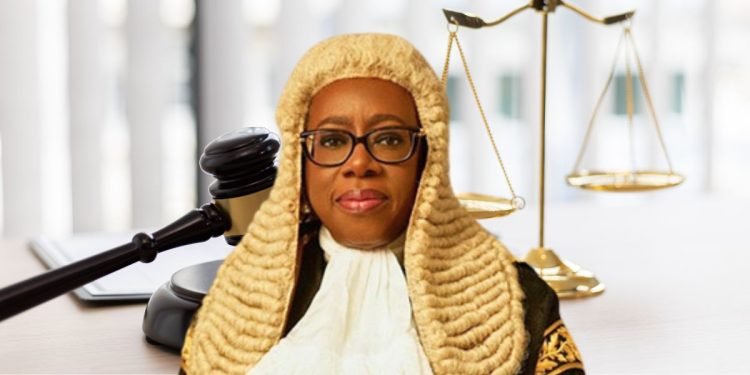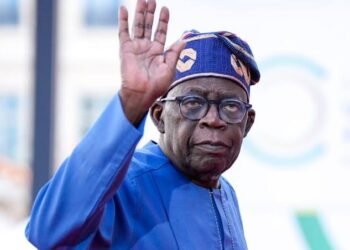Tinubu Swears in Kekere-Ekun as CJN
In a significant event for Nigeria’s judiciary, President Bola Tinubu recently swore in Justice Kekere-Ekun as the new Chief Justice of Nigeria (CJN). This appointment marks a pivotal moment in the country’s legal landscape, as the CJN plays a crucial role in overseeing the administration of justice and ensuring the independence of the judiciary.
Background of Kekere-Ekun
Justice Kekere-Ekun’s journey to becoming the CJN is a testament to her dedication and expertise in the legal field. Born and raised in Nigeria, she pursued her legal education at one of the country’s prestigious universities. Over the years, she has built a formidable career, handling numerous high-profile cases that have shaped Nigerian jurisprudence.
The Swearing-In Ceremony
The swearing-in ceremony took place on a bright morning at the Presidential Villa in Abuja. The event was attended by key figures in the government, judiciary, and legal community. Among the notable attendees were former CJNs, senior advocates, and members of the National Assembly. The ceremony was marked by speeches, oaths, and a sense of optimism for the future.
Tinubu’s Speech
In his address, President Tinubu highlighted the importance of a robust and independent judiciary. He expressed confidence in Justice Kekere-Ekun’s ability to lead the judiciary with integrity and fairness. Tinubu also outlined his administration’s commitment to supporting judicial reforms and ensuring that the judiciary remains a pillar of democracy in Nigeria.
Kekere-Ekun’s Vision
Justice Kekere-Ekun, in her inaugural speech, laid out her vision for the judiciary. She emphasized the need for transparency, accountability, and efficiency in the judicial process. Her immediate priorities include tackling the backlog of cases, improving access to justice, and enhancing the welfare of judicial officers.
Reactions from the Legal Community
The legal community has largely welcomed Kekere-Ekun’s appointment. Prominent lawyers and judges have expressed their support, noting her extensive experience and commitment to justice. Public opinion has also been favorable, with many Nigerians hopeful that her leadership will bring much-needed reforms to the judiciary.
Challenges Ahead
Despite the optimism, Justice Kekere-Ekun faces significant challenges. The Nigerian judiciary is plagued by issues such as corruption, delays in the judicial process, and inadequate funding. Addressing these challenges will require strategic planning and collaboration with other branches of government.
Comparisons with Previous CJNs
Comparing Justice Kekere-Ekun with her predecessors, it is clear that each CJN has brought unique strengths to the role. While past CJNs have made notable contributions, Kekere-Ekun’s approach is expected to focus more on modernization and efficiency, reflecting the evolving needs of the Nigerian legal system.
Impact on the Nigerian Legal System
Justice Kekere-Ekun’s appointment is expected to bring about significant reforms in the legal system. Her focus on transparency and accountability is likely to enhance public trust in the judiciary. In the long term, these reforms could lead to a more efficient and effective judicial system.
International Perspective
The international community has taken note of Kekere-Ekun’s appointment, viewing it as a positive step for Nigeria. Comparisons have been drawn with judicial systems in other countries, highlighting the global importance of an independent judiciary.
Public Expectations
Nigerians have high expectations for the new CJN. Many hope to see quicker resolution of cases, reduced corruption, and greater access to justice. The impact of these changes could be profound, affecting not just the legal community but the everyday lives of citizens.
Media Coverage
The swearing-in ceremony and subsequent reactions have been widely covered by the media. Analysis of media perspectives reveals a generally positive outlook, with commentators praising Kekere-Ekun’s qualifications and vision for the judiciary.
Future of the Nigerian Judiciary
Looking ahead, the future of the Nigerian judiciary under Justice Kekere-Ekun’s leadership appears promising. Her long-term goals include comprehensive judicial reforms, improved infrastructure, and enhanced training for judicial officers. However, achieving these goals will require overcoming significant challenges.










![Portable Orders Assault On Car Dealer Over Delayed Vehicle Delivery [VIDEO]](https://accesspost.ng/wp-content/uploads/2024/09/Portable-120x86.jpg)


